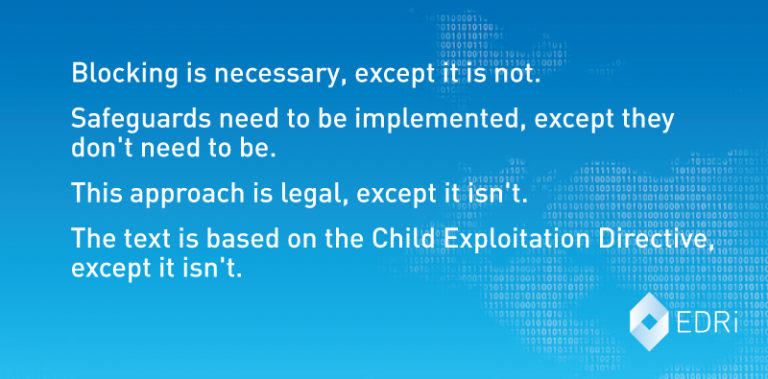Tomorrow the Europeans Parliaments civil liberties (LIBE) committee will vote on new EU regulation to combat terrorism.
In the committee, German MEP Monika Hohlmeier (EPP) has introduced an amendment stating that member states “may take all necessary measures to remove or to block access to web pages publicly inciting to commit terrorist offences”.
In a comment in Ars Technica, EDRi says…
“This leaves the door wide open for private companies to police content and very likely over-block or delete any content they are unsure about,” EDRi (European Digital Rights) head Joe McNamee told Ars. He added that European law requires that any blocking or content restriction measures “must be provided for by law, subject to initial judicial control and periodic review.”
If adopted in the LIBE committee, this proposal will be voted in plenary, probably as soon as 4-7 July.
Jennifer Baker in Ars Technica: Web content blocking squeezed into draft EU anti-terrorism law »
EDRi: Terrorism and internet blocking – is this the most ridiculous amendment ever? »

/ HAX